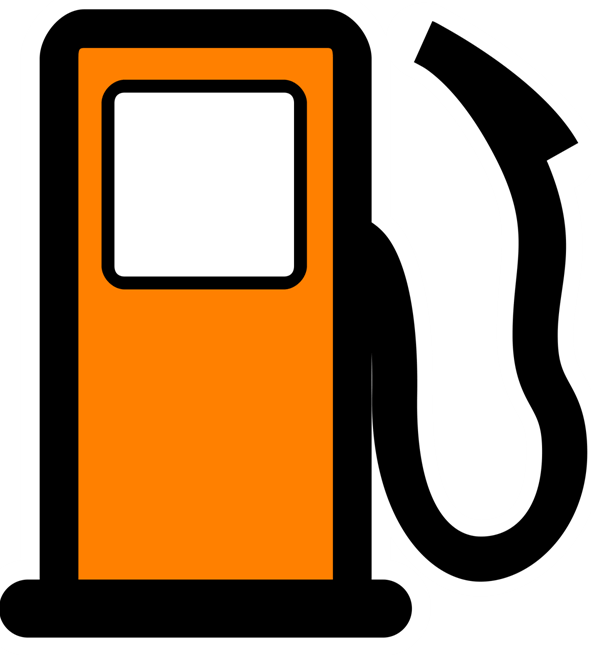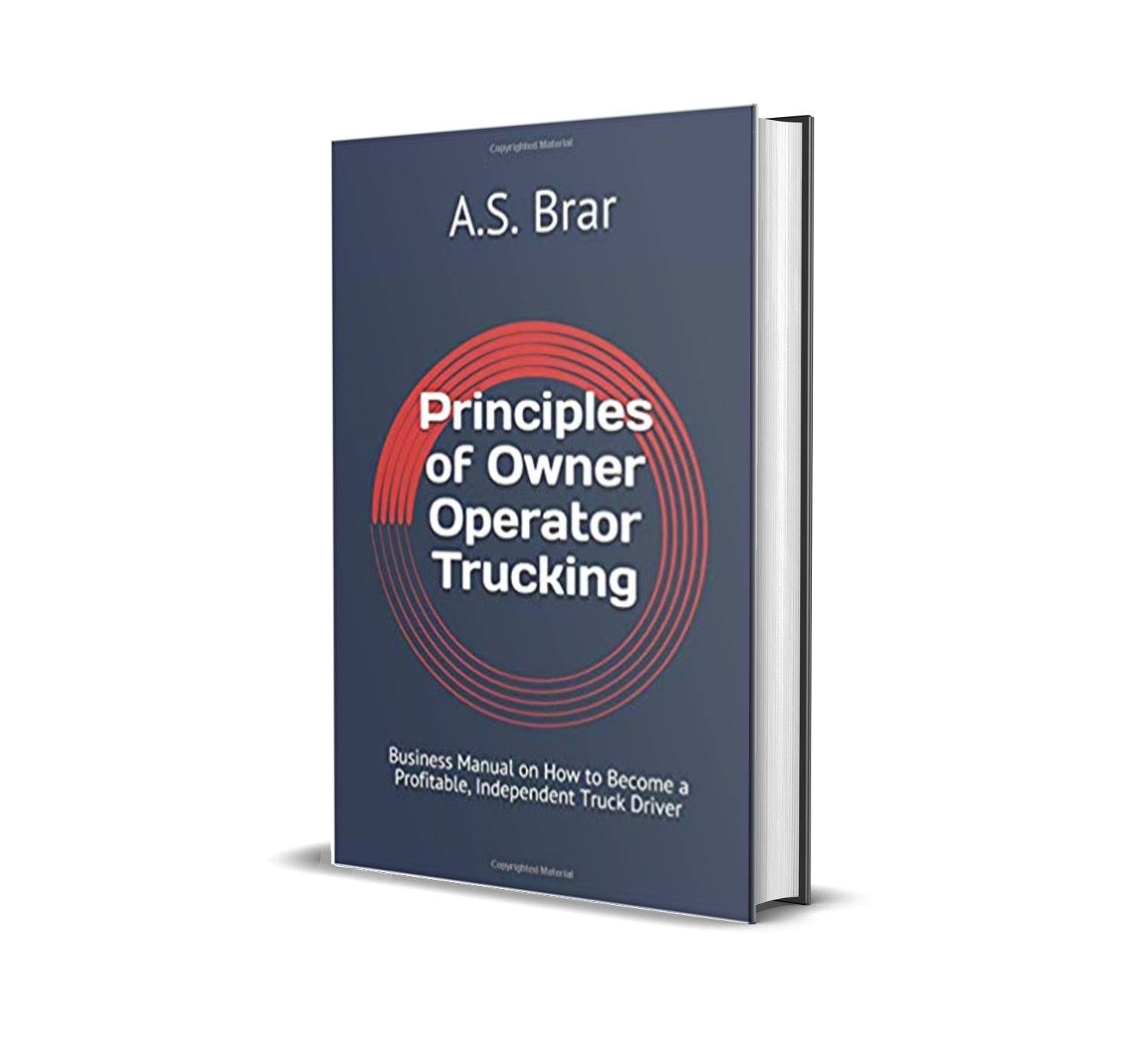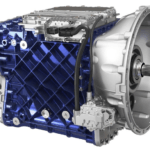Ever since the first diesel engine was invented by a refrigerator engineer, using the methods of compression that are found in refrigerators and diesel engines have taken over the world. We find it being used in huge trucks, particularly semi-trucks, which drive under heavy loads.
Despite that, people have found it puzzling that in the real world that the majority of the trucks in the world run on diesel engines. They find it puzzling because in many parts of the world, in particular with the United States, they associate using diesel as a fuel dangerous for the environment.
Many people, especially environmentalists who are militantly environmentally friendly, suggests that using gas powered cars are even more environmentally friendly than diesel because they emit black smoke. This opinion apparently means that diesel engines are less environmentally friendly than gas cars.
However, many do not realize the general benefits of using diesel in heavy vehicles such as semi-trucks. Hence the continued ill perception of using diesel as a fuel for trucks has evolved.
In this article, four reasons will be offered as to why semi-trucks use diesel as their preferred fuel.
This article has been written for those who are unfamiliar with diesel engines and is intended to act as a beginner’s guide to diesel engines as well.
Also, the history of the diesel engine, how a diesel engine works, the differences between diesel and gas, and the future of diesel as a fuel regarding renewable energies will be presented.
History of the Diesel engine.
 Rudolph Diesel first designed the diesel engine in the late 1890’s. At that time, the industrial revolution was in full swing. Manufacturing jobs were replacing many farming jobs and more people were moving to the cities to work.
Rudolph Diesel first designed the diesel engine in the late 1890’s. At that time, the industrial revolution was in full swing. Manufacturing jobs were replacing many farming jobs and more people were moving to the cities to work.
Diesel came up with the idea while he was working with his former professor, Carl Von Linde. He later started working on his patents for his engine, which would focus more on the efficiency of the fuel used in an engine.
After Diesel passed away in 1913, the diesel engine went through significant changes in the way that the engine burned fuel. It began to be used in all sorts of vehicles such as trains, construction vehicles, and trucks.
Today’s diesel engines are much different compared to the first diesel engines in terms of efficiency and the way that the diesel engines are built.
How does a Diesel engine work?
For a person to understand why semi-trucks use diesel engines, one must know how diesel engines work. In that way, the person can form a fundamental understanding of why diesel is the preferred fuel for heavy range vehicles.
When you first start the diesel engine, you have to turn on the ignition. This is obvious, right? Well maybe for the wrong reasons.
First of all, the cylinders need to be heated up for combustion to commence. This process involves injecting fuel into the cylinders at high pressure. It is that high pressure that ensures that the air inside the cylinders is heated. A diesel engine is not like a gas engine, which requires spark plugs to start the combustion process.
Once the engine is heated to the optimal level, you have to press on the accelerator pedal and turn the ignition to fire up the engine. When that happens, fuel is delivered to the injector nozzles before going into the combustion cylinders.
In the injector nozzles, the fuel is pressurized into a delivery tube where it is taken to the combustion cylinders. When this happens, the fuel will meet with the combusted air, and so a chemical reaction will occur; resulting in complete combustion and therefore the diesel engine will produce power for the car to accelerate.
In terms of the diesel fuels, they come in two types – Diesel One and Diesel Two. Most diesel fuels come with a Cetane rating of 40-55. However, that should not be a problem for most diesel engines because Diesel Two is commonly used for normal driving conditions.
The most interesting part of diesel engines is that you can use any fuel to power the engines. This is because unlike gas engines, diesel engines do not require spark plugs to initiate the combustion process. As long as the fuel can be injected into the combustion cylinders under pressure to create the hot temperatures needed for complete combustion, it is possible to use other fuels. Some have experimented with using vegetable oils or even Biofuel diesel, which are a combination of diesel fuel and plant-based oils such as corn and effluent.
Where are Diesel engines mostly found?
Diesel engines are found in all kinds of machinery and vehicles. Finding diesel in normal automobiles is possible. Generators are well known to use diesel as a fuel, especially in those situations such as emergencies where a generator is required to be used for extended periods of time.
Diesel Engines can also be found in construction equipment, especially the ones where the machinery has perform a lot of heavy lifting to get the job done.
Concerning other transport, trains had used diesel engines in the past, before the trains began to be switched to more environmentally friendly methods of fuel such as electricity and bio fuels. Also, trains have been using some magnetic levitation to increase efficiency instead of using diesel.
As we have seen, it is always the equipment that does the heavy lifting and is required to be used for long periods of time, such as the diesel generator.
So why do heavy trucks, such as the semi-trucks, use diesel as their fuel of choice? Considering that trucks are required to be used for long periods of time, they could go for gas powered trucks which are environmentally friendly. These trucks would be contributing to the survival of the earth by not using diesel fuel if you listened to the militant environmentalist’s opinions.
However, what environmentalists do not understand is that there are several benefits which are related to a business’s bottom line. Especially for semi-trucks, which are required to carry heavy loads and have an obligation to be on the road for a high number of hours.
Now that a basic understanding of diesel engines, we must now move onto the reasons why semi-trucks use diesel. Here they are:
1. Efficiency
If you look at the energy produced by diesel, you will see that diesel produces about 147,000 BTU of energy. Compare that to gas, which produces around 125,000 BTU of energy. What this means is that for every drop of fuel used, diesel produces more energy than gas overall.
It is advantageous for semi-trucks to use diesel when carrying heavy loads. The semi-truck can accomplish more mileage with diesel as a fuel than gas simply because diesel produces more energy than gas. What this means is that the semi-truck does not require as much diesel as it would require for gas to carry the same heavy load from point a to point b.
This has a significant impact on the efficiency of the diesel engine. In terms of operating time, diesel engines can run for longer than gas engines before requiring maintenance. This is simply because of the diesel engine not requiring spark plugs, which need to be regularly replaced in gas engines. It is estimated, for example, that diesel engines can operate for 12000 to 30000 hours before requiring maintenance; gas powered engines can run for 6000-10000 hours before requiring maintenance. What this shows is that the efficiency of the diesel engine is better overall to the point that the diesel engine can run for longer than a gas engine.
Therefore, the semi-truck can use diesel to travel distances for more extended periods of time and also with using diesel fuel in a diesel engine, less maintenance is required than a gas powered engine.
2. Cost
In terms of the cost, using diesel fuel to power semi-trucks significantly reduces the costs for this type of truck and among other heavy vehicles.
The costs of using diesel are linked to the efficiency of the diesel as a fuel and also the fact that the engine that diesel is used in has low maintenance requirements. It should also be noted that fuel costs per kilowatt are thirty to fifty percent cheaper than with gas.
Take the cost of fuel, for example. Since diesel produces more energy than gas, that means that diesel as a fuel can accomplish more mileage than gas overall. That means that for the Semi-Trucks, this means that the truck driver does not need to refuel regularly with diesel.
As we also stated in the section about how the diesel engine worked, the diesel engine does not require spark plugs to initiate combustion in the engine. Since spark plugs need to be regularly replaced in gas engines, this means that the maintenance costs in the gas engines are more expensive than diesel engines. Whereas in diesel engines, it is the injection of diesel fuel, at high pressure, into the combustion cylinders to heat up the engine before beginning the combustion process makes diesel engines cheaper.
So what this means is that the Semi-trucks do not have to be maintained as much with diesel engines rather than with gas. The costs overall are lower and therefore for the businesses who use these Semi-trucks, they do not have to spend as much with their budget on the cost of maintenance of these trucks.
3. Provides more torque and a better power to weight ratio.
Let’s understand something about Semi trucks – they need to carry heavy loads of goods over many terrains. Some Semi trucks are used over in mountainous regions or on flat roads for extended periods of time.
To make sure that the semi trucks can achieve that, they require engines and fuels which can produce high amounts of torque in the Semi truck. This can be found in the diesel engine and with diesel fuel for a whole number of reasons.
First, since diesel engines do not require the use of spark plugs, the pistons in the combustion cylinder have to travel further inside the cylinder to compress the air. This requires a longer crankshaft.
The reason why it is useful to have a longer crankshaft overall is that the longer crankshaft produces a longer stroke. This means that if we assume that the diesel engine and the gas engine provide the same force, then the diesel engine can produce a higher torque sine the lever arm is longer. You might say that the gas powered engine can deliver just as much power as the diesel engine; however, the gas engine is turning the crankshaft more often, producing less torque than the diesel engine.
It is that torque which allows the diesel engine to have a higher power to weight ratio.
4. Life expectancy of the diesel engines overall.
One of the reasons why diesel is used as a fuel for a generator is that when the generator is required to run for long periods of time, diesel engines have a longer life expectancy than gas engines. This also applies to semi trucks.
Believe it or not, semi-trucks require more maintenance costs because of the heavy loads that the trucks are needed to do. Having a diesel engine will help with semi-trucks overall because the diesel engine does not require as much maintenance as a gas engine.
The secret lies in the heat produced by the engine. Since gas-powered engines emit more heat than diesel engines, the metal will be worn down by the heat generated by gas than by diesel. Therefore, you are more likely to see a shorter lifespan for gas engines than for the diesel engines.
What this means for the Semi-trucks overall is that the diesel engine does not need to replace as often as a gas engine. Although diesel engines are expensive to buy, the expense is justified by spending less money over time compared to the gas powered engine.
Therefore, the diesel fuel in the semi-truck ensures that the life span of the engine lasts longer because the diesel fuel helps the diesel engine emit less heat.
Overall verdict.
The diesel engine, along with diesel as a fuel, is a great device for Semi-trucks to use. The fuel efficiency, costs, life span and the power to weight ratio make diesel fuel and diesel engines superior to gas engines.
Although the diesel fuel emits more toxic gases than gas fuel does, it does mean that diesel engines are more productive than gasoline engines. This is ideal for companies who seek to use standard forms of transport.




Before we purchase some semi-trucks, I want to make sure that we’re getting the best fuel that we can buy for the farm, and since you said that diesel offers efficiency, then I guess it would really help when we’re transporting our vegetables to other towns and cities. The cost which you mentioned should save us money since it would be cheaper than buying gas. Because I also agree that the life expectancy of the diesel engines overall as you stated is great, then we should be able to benefit from buying semi-trucks that use diesel from a good oil company that supplies them.
For farm use, you need to look at delivery locations and their requirements. If delivering into enclosed spaces such as Produce Markets, it may be better to go with Propane or LNG … Some of the longest lived engines are the ones running on propane. Used to be the trucks burned the fuel in the big tank. 1/2 M mile engines are not uncommon. Clean and trouble free.
The reason they are not popular now is that the tax rules and enforcement killed the operators ability to run off the product tank. They in essence were not paying road tax. So to prove they were, most have switched to diesel trucks to carry propane. They have to have the clear paper trail now.
If your farm has access to propane, it might work for you. Propane for over the road use can be had in most commercial districts.
Diesel engines did not overtake gasoline engines in heavy trucking until the 1950’s. Up until then, gasoline was king. There were many gasoline engines that made 1800 lb/ft of torque including such luminaries as the OHC hemispherical combustion chamber Hall-Scott 1081 cubic inch straight six. But with wet liners and massive precision machining, it cost as mush as as a diesel to build. At the time diesel as a fuel was cheap. Way cheaper than gasoline and delivered better average fuel economy because diesel has more heat energy per gallon (BTU’s) than gasoline. So cheaper with more energy – easy equation to figure out. However, now days with gasoline less expensive in some areas than diesel, gas engines in trucks are making a small comeback.
I like that you mentioned that fuel efficiency is one of the main benefits of driving a diesel truck. I’d like to look for a diesel truck repair services soon because I’m interested in buying a truck like that for my own. That way, I can get regular maintenance right away a few months after buying it.